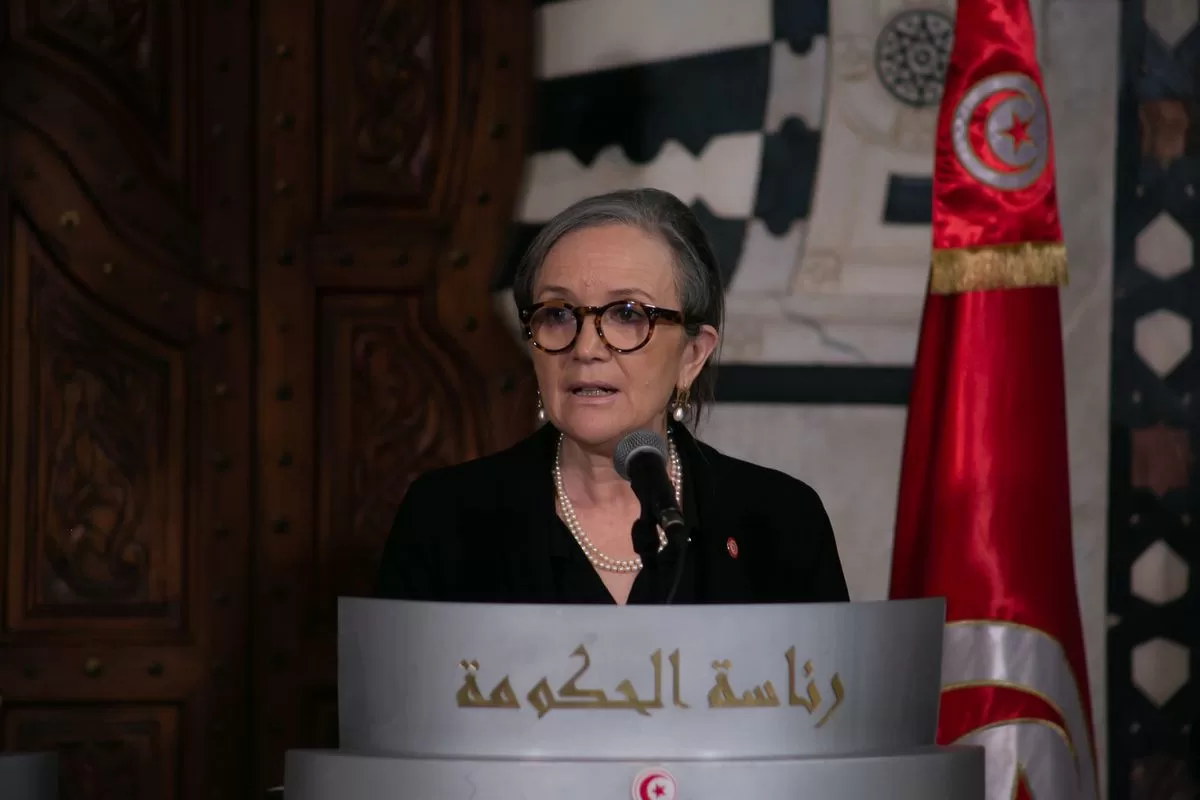Although her appointment was accompanied by a certain historical bombast, with the local and international press highlighting her status as the first woman to hold the position of head of government in the entire Arab world, Najla Buden has left through the back door of the Tunisian Executive. President Kais Said, who has been accumulating powers after a kind of “self-coup” in the summer of 2021, fired Buden at midnight on Tuesday and appointed Ahmed Hachani, a hitherto unknown central bank official, where he headed the Human Resources section.
Two years ago, the very choice of Buden, a 65-year-old geologist and professor at the Tunisian El Manar university, was also received as a surprise, since she had never been significant on the country’s political scene either and most Tunisians had never heard of her. The decision was consistent with the vision of Said, elected as an independent and hostile to political parties. Since the beginning of this year, his regime has imprisoned more than twenty opposition political personalities of all ideologies, but a good part of them belong to the historic Ennahda Islamist movement.
In her two years as head of government — a position equivalent to that of prime minister — Buden has kept a low political profile. “His main responsibility was to smile meekly at Said’s requests,” analyst Monica Marks wrote on Twitter, referring to the usual videos released by the Ministry of Communication in which, sitting in the presidential office, Said lectured a Silent Buden on the country’s problems. These types of recordings are the main means through which Said communicates with the population.
Setbacks in women’s rights
“Unfortunately, it has served to beautify the image of the Government after July 25 (the day of Said’s self-coup), and the image of Tunisia internationally. Feminists asked that all her prerogatives be assigned to her to play her role, but it did not happen. Machismo won ”, comments the activist Ahlem Bousserwel, who recalls how under her administration there have been some setbacks for women’s rights. Among them, the withdrawal of the obligation of gender parity in the electoral lists.
It is not easy to unravel the motivations for the actions of Said, an opaque president, hostile to the press and who has not given a single press conference since his rise to power. Once again, he has offered no public explanation for Buden’s removal. However, most analysts agree that it is linked to the negotiation of a loan with the International Monetary Fund (IMF), the issue that dominates the political debate in a country that is going through a serious financial crisis. “Said wants the state to speak with one voice, he doesn’t want dissenting voices, and several ministers have expressed opinions that contradicted the president’s on the issue of negotiations with the IMF,” says Professor Tarek Kahlaoui, well connected to the presidential environment.
Join EL PAÍS to follow all the news and read without limits.
subscribe
Without going any further, last Friday, the Minister of Economy, Samir Said, said in an appearance in Parliament that the agreement with the IMF was “key” for Tunisia, a position contrary to that of the country’s president, who prefers to delay the signing of the credit with the international financial institution. Over the next few days, Hachani must present the composition of his government. “I don’t think there will be a profound remodeling, but surely all the ministers with portfolios related to the economy will change. It is also a way for the president to blame the government for the problems of scarcity of some foods in the country”, says Kahlaoui.
In the autumn of last year, the Tunisian government reached an agreement in principle with the IMF to apply a structural adjustment program in exchange for a loan worth 1.73 billion euros. However, Said rejected the deal as an imposition, and talks are deadlocked. The signing of the loan with the IMF is a condition for the European Union to disburse aid to Tunisia worth about 1,000 million euros (457 million euros), according to an agreement signed a couple of weeks ago by the president of the Commission European, Ursula von der Leyen.
However, after Saudi Arabia has deposited some 500 million dollars in the Tunisian central bank in recent weeks, experts believe that Said may have enough funds to keep the Tunisian economy afloat until 2024, without resorting to the support of the IMF. A good season is also playing in his favor for the tourism sector, one of the mainstays of the Tunisian economy.
Follow all the international information on Facebook and Twitteror in our weekly newsletter.
Subscribe to continue reading
Read without limits






